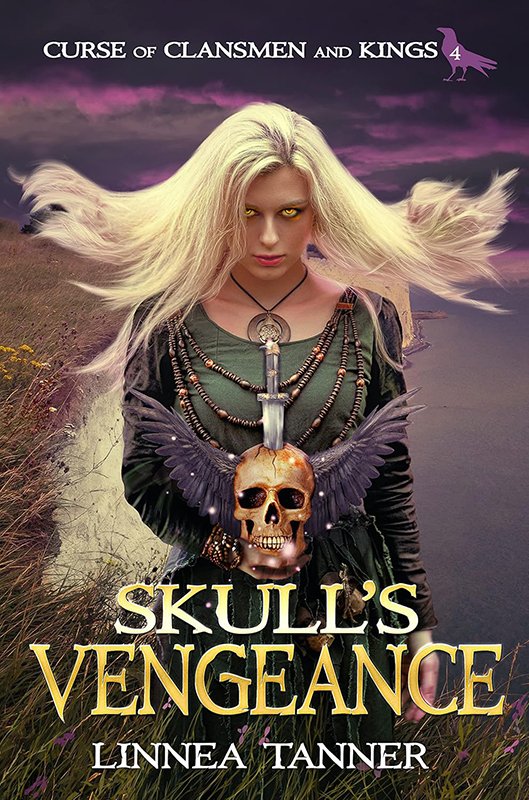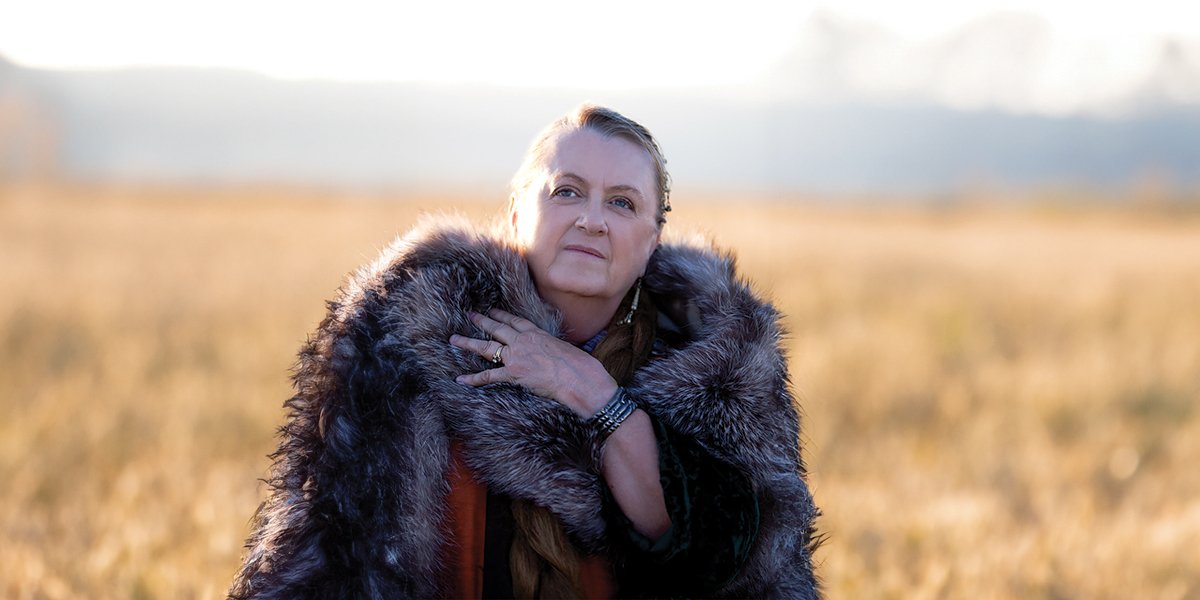PHOTO: Award-Winning Author Linnea Tanner, Bringing Ancient Worlds and Mystical Legends to Life
Celtic Mythology Meets Roman History
Linnea Tanner discusses interweaving Celtic mythology with Roman history, crafting complex characters, blending historical accuracy with fantasy, and her personal inspirations, including ancient warriors and her transformative travel experiences to archaeological sites.
Linnea Tanner’s literary mastery showcases a dazzling interplay of historical authenticity and mythical imagination, making her a standout voice in the realm of historical fiction enriched with Celtic mythology. A true luminary in her craft, Tanner doesn’t merely write stories; she conjures immersive worlds brimming with political intrigue, forbidden love, fierce battles, and the enigmatic tension between Roman imperialism and Britannic mysticism. Her award-winning Curse of Clansmen and Kings series—a tapestry elegantly woven with titles like Apollo’s Raven, Dagger’s Destiny, Amulet’s Rapture, and Skull’s Vengeance—is a testament to her dedication to vivid storytelling and meticulous research. Additionally, her poignant short story, Two Faces of Janus, demonstrates her ability to delve deeply into the human condition within the historical context of Ancient Rome.
Inspired by the indomitable spirit of women like Boudicca, Linnea crafts heroines who defy adversity, and through their journeys, she explores universal themes of love, power, resilience, and identity. Her protagonist, Catrin, is a force to be reckoned with—a Celtic warrior princess with Druidic abilities whose evolution from innocence to sovereignty captures the hearts of readers. With an academic foundation in chemistry paired with an undying passion for history and mythology, Linnea seamlessly blends rigorous archaeological research with the imaginative flair of fantasy to bring the ancient world to life.
In this interview, Linnea Tanner takes us behind the scenes of her captivating narratives, reflecting on the inspirations, cultural clashes, and mythical underpinnings that shape her tales. Her travels to historical sites, her fascination with Arthurian legends and the legacy of Mark Antony and Cleopatra, as well as her dedication to interweaving history with fantasy, reveal the mind of an author deeply committed to her readers and her craft. It is with great admiration that we invite you to meet the brilliant mind behind stories that transport us to the mystical and tumultuous realms of Ancient Rome and Britannia.
Linnea Tanner captivates readers with her intricate storytelling, richly imagined worlds, and masterful blend of history, mythology, and fantasy.
How has your background in chemistry influenced your approach to writing historical fiction, particularly in integrating detailed research into your narratives?
My background in chemistry provides a basis on how I research historical books, academic papers, and archaeological findings to support my work. The Celts left almost no written records. Their historical events were supplanted by Greek and Roman historians, archaeological findings, and medieval writers who spun their Christian beliefs into the Celtic mythology they wrote about.
Your ‘Curse of Clansmen and Kings’ series intertwines Celtic mythology with Roman history. What inspired you to blend these two distinct cultures in your storytelling?
The series is inspired by Boudicca, a Celtic warrior queen and druidess who united the Britons in a rebellion against the Romans in AD 61. The Celts held women in higher esteem than the empire-building Romans. The cultural conflict between the prosaic, realistic Romans and the mystical, nature-oriented Britannic tribes provides a major conflict in the series.
“The cultural conflict between the prosaic, realistic Romans and the mystical, nature-oriented Britannic tribes provides a major conflict in the series.” – Linnea Tanner
Catrin, the protagonist in your series, is a Celtic warrior princess with Druidic abilities. How did you develop her character, and what aspects of her journey do you believe resonate most with readers?
The series is a coming-of-age story of Catrin who must transform from a naïve Celtic princess into a formidable warrior queen. She is tested in ordeals so she can gain newfound wisdom and power to overcome her treacherous half-brother, King Marrock. Modern-day audiences will relate to her emotions of love, grief, and heartbreak as she courageously faces what seems insurmountable circumstances.
In ‘Skull’s Vengeance’, Catrin faces her sorcerer half-brother, King Marrock. Can you share insights into crafting their complex sibling rivalry and its significance to the overarching plot?
The sibling rivalry between Catrin and King Marrock drives the overarching plot. The first book in the series, Apollo’s Raven, begins when Catrin’s father reveals that she is the raven and Marrock is Blood Wolf in the curse cast by the previous queen, Marrock’s mother: “I prophesy your future queen will begat a daughter who will rise as a raven and join your son, Blood Wolf, and overtake your kingdom.” Catrin must break the curse by altering the future which may have unforeseeable consequences. Not only is the tale about her conflict with Marrock, but it is also about her internal struggle not to transform into someone as evil as him as she gains new magical powers.
“Modern-day audiences will relate to her emotions of love, grief, and heartbreak as she courageously faces what seems insurmountable circumstances.” – Linnea Tanner
Your short story ‘Two Faces of Janus’ is set in Ancient Rome. How does this narrative connect to or diverge from the themes explored in your main series?
One of the antagonists in the Curse of Clansmen and Kings series is Lucius Antonius, the father of Catrin’s secret husband (Marcellus Antonius). Little is known about Lucius except he was the son of Iullus Antonius and grandson of Marcus Antonius (Mark Antony) and was banished to Gaul after his father’s death. In Two Faces of Janus, Lucius must demonstrate his fealty to Augustus Caesar by witnessing the suicide of his father who is condemned to die for his treasonous adultery with the emperor’s daughter. This tragic scene haunts Lucius throughout his life and impacts Marcellus’s fate in the series.
Having travelled to various archaeological sites for research, can you discuss a particular location that profoundly impacted your writing and how it influenced specific scenes or settings?
An eleven-mile hike on the Dover Cliffs inspired the first scene of Catrin spotting warships that suddenly appearing out of the mist in Apollo’s Raven. The Roman lighthouse at the Dover castle evoked the image of a fortress being built by King Marrock with the aid of Romans in Skull’s Vengeance. The ruins of the Amphitheatre of the Three Gauls in Lyon, France elicited an image of Catrin parading up the steep road to combat as a female gladiator at the arena in Amulet’s Rapture.
“The series is inspired by Boudicca, a Celtic warrior queen and druidess who united the Britons in a rebellion against the Romans in AD 61.” – Linnea Tanner
The series draws inspiration from Arthurian legends and the legacy of Cleopatra and Mark Antony. How have these historical and mythical elements shaped the themes and character dynamics in your work?
Although the series takes place almost 500 years earlier, the cultural clash between the Celts and Romans are pivotal to the storyline. Some of Merlin’s magic such as shapeshifting, controlling nature, and appearing and disappearing in a magical fog are depicted in the books. Before the Roman occupation of Britain in 43 AD, Britain may have been a client state like Cleopatra’s Egypt under Roman influence but ruled independently by local monarchs. The conflict of love and duty is a similar theme in the series as the legacy of Mark Antony and Cleopatra.
What advice would you offer to aspiring authors aiming to blend historical accuracy with elements of fantasy in their storytelling?
My advice is to research the period and ascertain whether the events in the story are historically plausible. For example, the backdrop of my series is based on evidence that Romans profoundly influenced British politics prior to their occupation of Britannia in 43 AD. Further, they should weave in fantastical elements as though it is the reality experienced by the characters.
EDITOR’S CHOICE
Linnea Tanner delivers a masterful blend of history, fantasy, and drama, creating an unforgettable tale with rich characters and intrigue.



